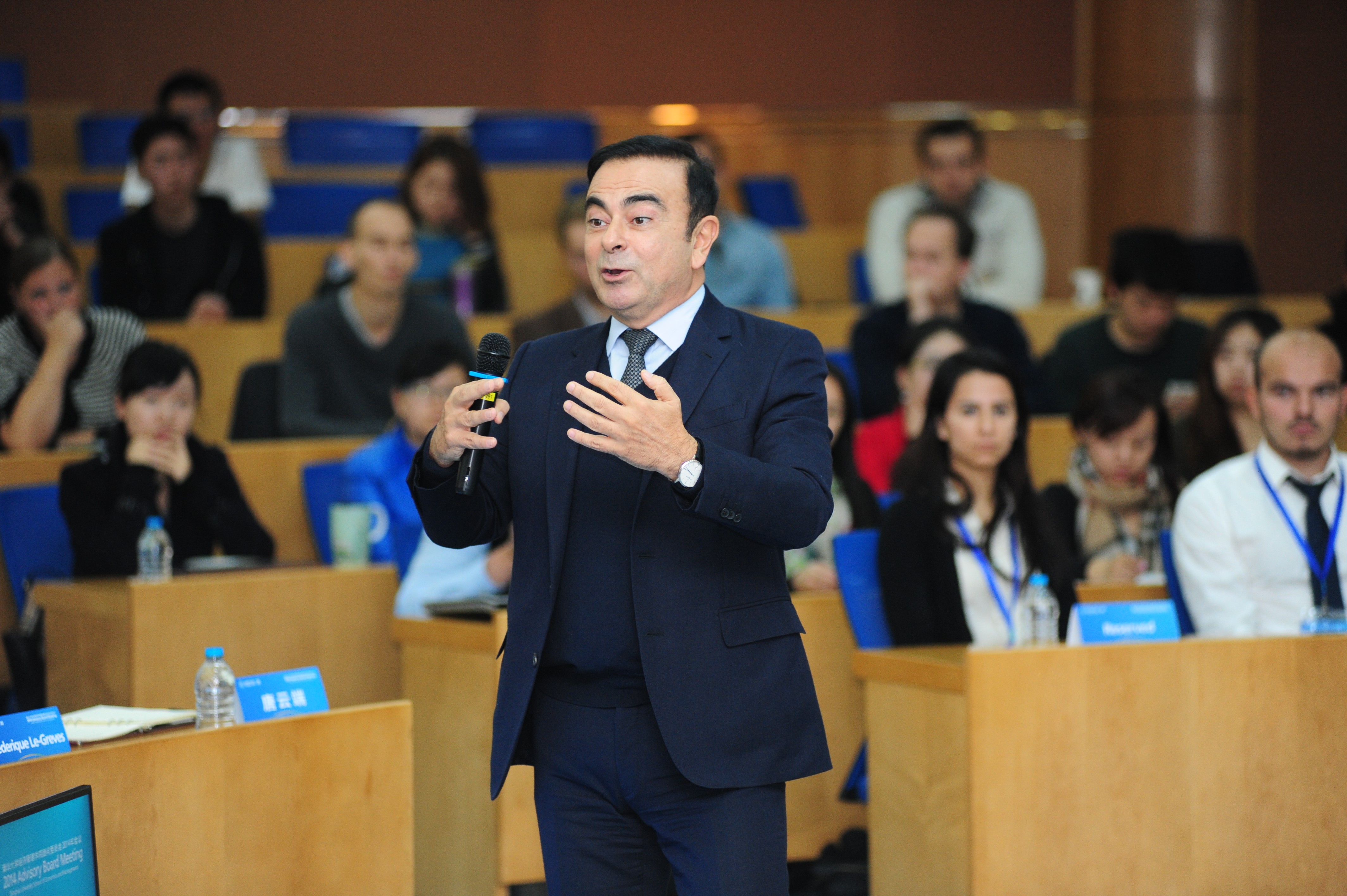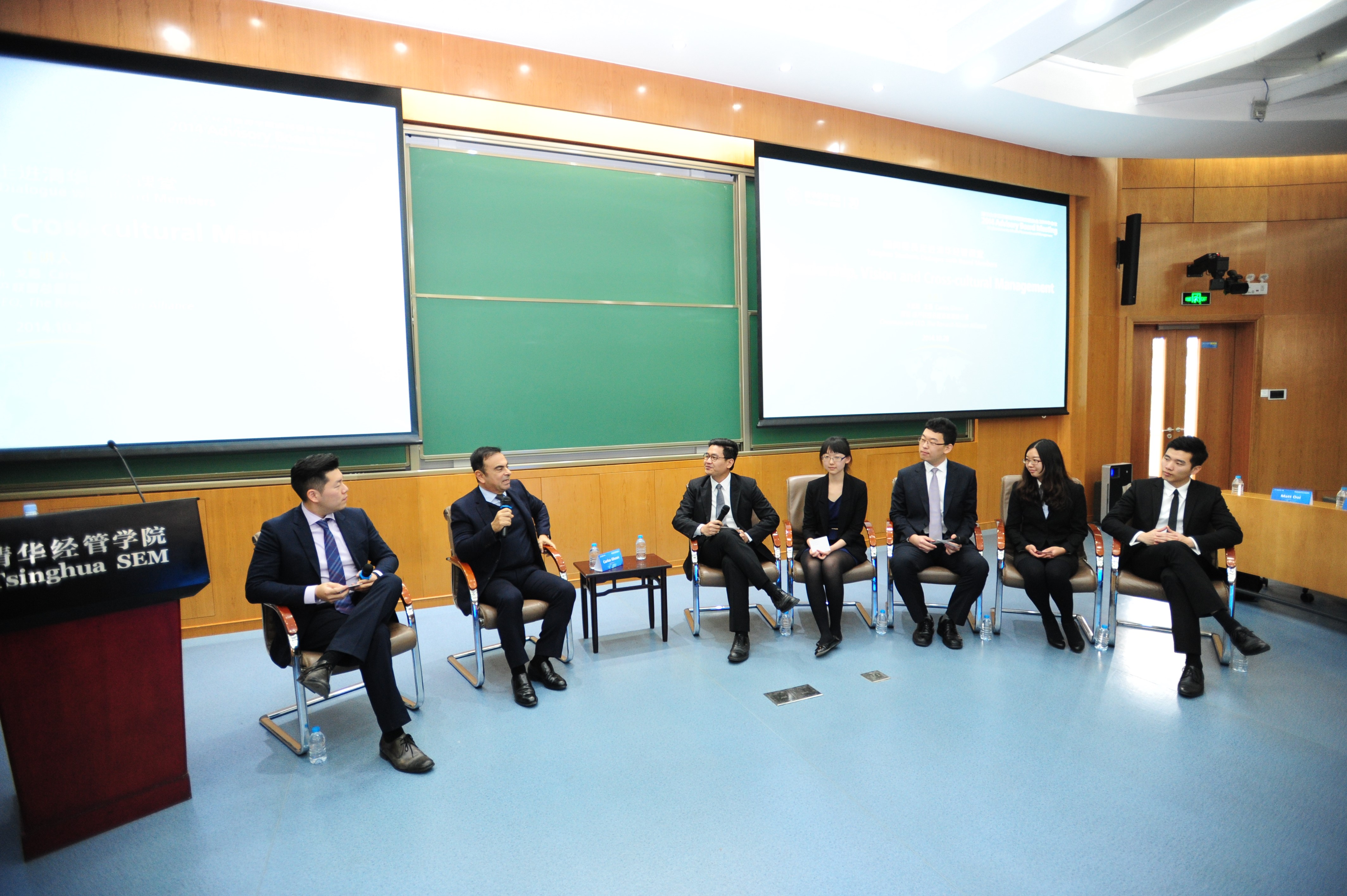
On 28 October 2014, Carlos Ghosn met with the students in Tsinghua and had a conversation on the topic of “Leadership, Vision and Cross-cultural Management”, as part of his visit to the school for the Tsinghua SEM Advisory Board Meeting.
It’s hard not to be impressed by Carlos. Born in Brazil, raised in Lebanon, educated in Paris, fluent in four languages and the only Chairman and CEO to lead two Fortune 500 companies with a combined revenues of 129 billion euros. Under his leadership of the Nissan-Renault merger has become the largest car manufacturer in the world and was – pre-merger – seen as a risky combination of companies and cultures.
This rare and valuable opportunity for the Tsinghua students to interact with Carlos hence revolved around the challenges of cross-cultural leadership, leadership traits and innovation in the auto-industry. With a seven-year legal experience, I’m compelled to put a disclaimer here that the content described below is my interpretation of the discussions, which should not be seen as a complete or accurate summary.
Regarding bridging culture gaps, Carlos focused on finding core competencies and acknowledging different cultures rather than trying to assimilate them. This approach is different from many companies who focus on a setting up a “company culture” that overrules local culture. In my opinion, this is result of the fact that Nissan and Renault both have their own cultures, which cannot easily be replaced by a global culture.

On leadership traits, Carlos held “the willingness to learn” in the highest regard. After working 15 years at Nissan-Renault as one of the longest reigning CEOs in the auto-industry, Carlos still considers every day a learning experience.
On innovation, Carlos shared two important considerations for user-focused design in the auto industry: 1) the need to free up time from driving; and 2) the need to make a car ride more enjoyable. This aligns with the development of self driving car by Google (LIDAR) and Mercedes (prototype S 500).
The highlight of the session was my question to Carlos on how he determined the Renault-Nissan strategy on energy. Developments in electric, hybrid, energy cell, biofuel and fossil fuel technologies – which are researched in parallel by Renault-Nissan – can harm the success of the others.
He answered that the choice for different energy use was to a large extent determined by regional/country specific regulations and tax incentives. Some countries focus on biofuel (generally those with large agricultural sectors), others on electric vehicles and yet others on hybrids. These policy differences are large enough to justify the development of different technologies in different countries.
It is further impossible to develop a conclusive vision on the energy source with the largest future potential. Nissan-Renault works on all these alternative technologies to ensure that they will not have to start from scratch if a breakthrough is made in one specific technology.
Overall the day provided unique insights on the auto-industry, the Renault-Nissan joint venture and, last but not the least, Carlos Ghosn’s personal journey as the CEO. We thank him for his time and hope to welcome him again soon.

From Gerard van Swieten, GMBA Class of 2016